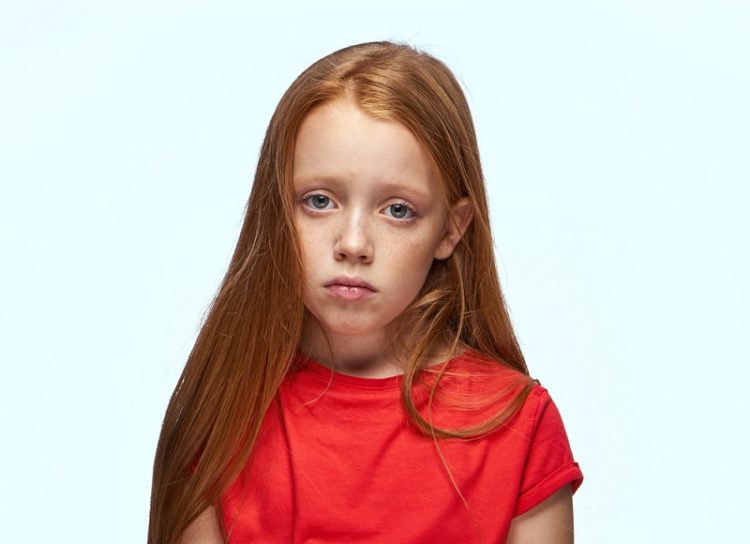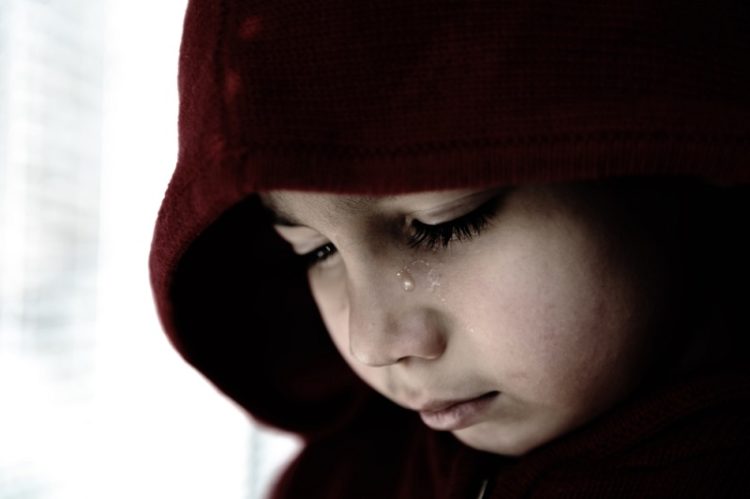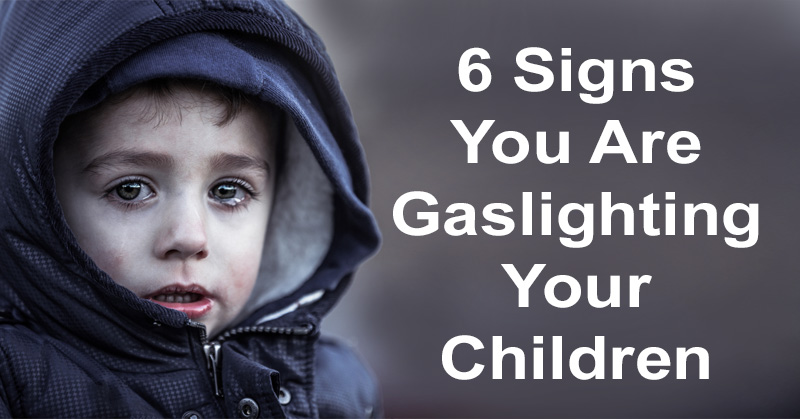There are six critical signs that you could be gaslighting your children that you should pay attention to…
Gaslighting your children is one of the worst things you can do to them. The worst thing is, you could be doing this unintentionally. Nobody wants to make their own children question their reality and no parent should ever gaslight their child. However, there are six crucial signs you should pay attention to to make sure you don’t inadvertently gaslight your children. Gaslighting is when you cause someone to question their reality or their sanity. This can be easy to do when your children count on your word as being the truth. When you are a parent you already control your child’s reality and gaslighting can happen quickly and easily.
#1 You lie to your child for no reason.
You might think it’s innocent to tell a small lie to your children to make them believe something silly or make them fall for a trick. However, this can cause a child to question their reality very quickly. When the world tells your child one thing and you tell them another, it is easy for them to get confused. Your child needs to know that they can believe what you say. When your child starts to see these inconsistencies, make sure you acknowledge them. Psychology Today says that people who gaslight in relationships tell blatant lies, just as someone might to their children.
#2 You never acknowledge your mistakes.
When you fail to acknowledge your mistakes or say sorry to your child when you’ve done something seriously wrong, they will begin to question their own worth. Failing to apologize to your children when you’ve wrong shows them that you don’t have to be accountable for your actions and that you don’t feel they have enough value to be respected. You should always try to make amends to your children when you’ve wronged them. Show them that you, too, are accountable for your actions and that your respect them enough to apologize when you’ve made a mistake. Psychology Today says that gaslighters sometimes go as far as denying they ever said something even when there is proof.

#3 You never compromise or adapt to your child’s needs.
When it comes to being flexible in order to make your child more comfortable, you can never compromise. For some reason you are so strict you believe that any flexibility shows weakness and might give your child an upper hand. Sometimes your child needs you to be a little flexible, just like everyday normal adults. Finding a compromise with your child shows them that you value their opinion and their comfort. You don’t need to be a pushover, but an inability to be flexible with your children is one way they devalue themselves. Be wary of this way of gaslighting your children.
#4 You use insults and put-downs in response to behavioral problems.
Parents who mock their children when they are having temper tantrums are the classic example of gaslighting. If you are gaslighting your children through insults and put-downs, your children may develop behavior problems. This can even extend to name-calling, with parents using all the classic insults against children who are having a hard time. Calling your child a “brat” or “spoiled” can have a serious impact on their self-esteem and their view of themselves.

#5 You are overly controlling for no reason.
“Mother knows best” certainly is the case in most situations. However, parents who control meaningless and vast portions of their child’s life are highly likely to end up in a gaslighting situation. Parents who assert their control over their children in meaningless ways are trying to show their child that they can control every single aspect of their life. When a child experiences this lack of control, they can feel helpless and confused. This helpless feeling makes them feel worthless because they associate their value with the level of freedom they have. Giving your child more freedom over their personal life decisions is a great way to improve their self esteem while less freedom harms their self esteem.
#6 You are overly critical of their mistakes.
You make mountains out molehills when it comes to mistakes made by your child. When they do something wrong, you really let them know it. By doing this you might think you are keeping them humble and hard-working. However, when you turn every small issue into a major conflict, you are teaching your child improper priorities. Instead of prioritizing themselves and their well-being, you are prioritizing their success and achievement at the expense of their psychological state. Try to keep things in perspective when your child makes a mistake and remember that everyone makes them.
Sources: Psychology Today


